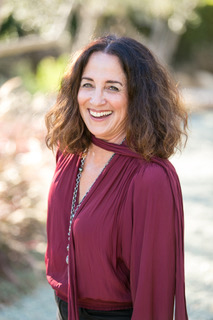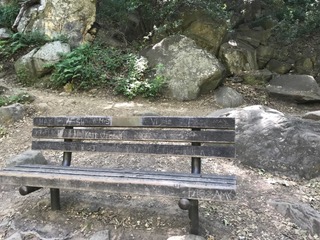This week marks the one-year anniversary of the tragic debris flow in Montecito, California, and many of us in the area are revisiting our experiences and memorializing the victims. On January 9, 2018, in the wee hours of the morning when just about everybody was asleep, there was a massive mudslide that poured down from the surrounding mountains, with large boulders crashing down on our community. The hiking trails I used to hike and the bench I sat on to write, were completely destroyed when the residents of the community were abruptly awakened by horrendous crashing sounds and bursts of fire. In the aftermath, 128 homes were destroyed, 307 were damaged, and there were more than 21 deaths and multiple injuries.
he firefighters were our heroes, working to save lives through their own extreme mental and physical exhaustion. Everyone’s senses were being tested. To make matters worse, due to the widespread nature of the disaster, first responders and emergency personnel were cut off from the local hospital. The freeways were closed, and within moments, we immediately became an island without power. Rescuers had to climb over fences to get to debris-flow victims. One woman was standing in mud almost to her forehead, and all the rescuers could see were the whites of her eyes. The scores of stories could fill volumes, and our community continues to heal by sharing our experiences. Many of us suffer from PTSD, which is particularly challenging, especially for those who’d already endured previous traumas.
In her thought-provoking book Paradise Built in Hell (2010), Rebecca Solnit shares her experience during and after the San Francisco earthquakes and writes about the wonders of communities uniting during times of disaster—showing their generosity, altruism, and self-sacrifice. This coming-together provides a channel for interconnectedness and communication and offers emotional and psychological support during such challenging times. Situations such as these also have a tendency to bring out the best in people. On a personal level, my husband and I, and many others, opened our homes to those who’d lost their homes, offering them homemade meals, shelter, and love.
Psychiatrist Viktor Frankl, who survived the Nazi concentration camps, wrote about why some people survived the Holocaust while others did not. He found that those who had meaning in their lives and a reason for being had a better chance of survival. In other words, many of those who perished were those who’d lost their sense of purpose. He also believed that what keeps humanity going is the striving and struggling for a worthwhile goal, and that tension-free situations are not necessarily fruitful ones.
I witnessed this phenomenon in Montecito, where food and clothes were being donated by members of the community, including store owners. Of course, there were opportunists, looters, and thieves, but for the most part, there was what Solnit called “a phase of solidarity that crossed many social divides.”Overall, the experience of going through a natural disaster was new to most of us. Some were told to evacuate, while others were not. I vividly remember a police officer knocking at my door at 2 p.m. suggesting that we leave by 8:00 that night. My husband thought the officer was overreacting, but I packed some bags, and we ended up going to a hotel a few miles away.
A dear friend who was not in the evacuation zone was told by her personal assistant, “I’m from Minnesota; we don’t mess with weather. You need to leave.” Thankfully, my friend and her husband listened to this advice, because they lost their beautiful home and the many magical artifacts they’d accumulated from their worldwide travels. They were left only with the clothes on their backs, their two automobiles, and their lives—which, of course, is all that matters.
While the shock of the event was surreal and almost too much to fathom, one thing was clear: the experience was a reminder to all of us to focus on living in the present moment and to not be overly concerned about material goods. Fighting for one’s survival is certainly one way of realizing the preciousness of life and getting back to basics.
Solnit said, “Disaster could be called a crash course in Buddhist principles of
compassion for all beings of nonattachment, of abandoning the illusion of one’s
sense of separateness, of being fully present, and of awareness . . .” Without
warning, everything we thought was important became less so as we got in touch
with our higher, more evolved selves.
What I learned:
Everything is impermanent.
- Humans desire purpose and meaning.People truly come together during natural disasters.
- We are social creatures hungry for connection.
- During difficult times, we learn what is possible and what we’re capable of.
- Disasters offer a temporary respite from mundane worries.
- Events such as these encourage mindfulness as a way to survival.
- People can transform in profound ways after these experiences.
- The majority of individuals rise to the occasion.
Solnit wrote, “It’s a very profound transformation that takes place during catastrophes.”
There’s no question that suffering and loss transforms us, especially when challenging experiences are shared. I saw a poster in Montecito after the mudslide that said, “Everything is a teacher . . . love strength and healing to all,” and may the healing continue.
References:
Frankl, V. Man’s Search for Meaning. Boston, MA: Beacon Press.
Hanh, T. N. (2014). No Mud. No Lotus. Berkeley, CA: Parallax Press
Solnit, R. (2010). A Paradise Built in Hell. New York, NY: Penguin Books.


